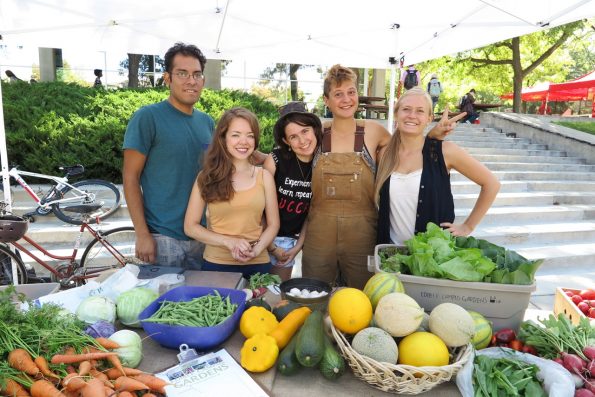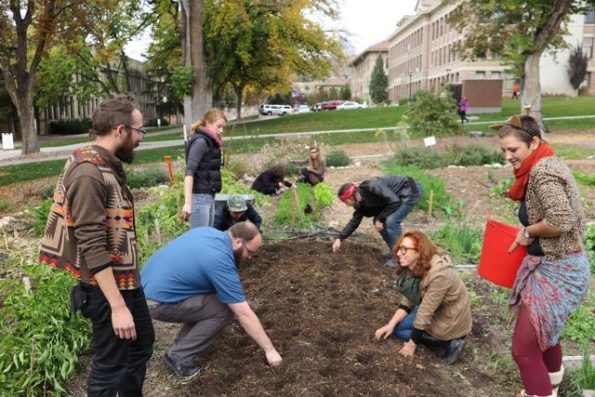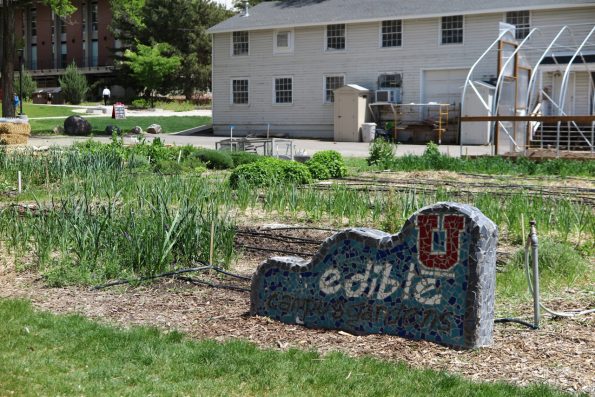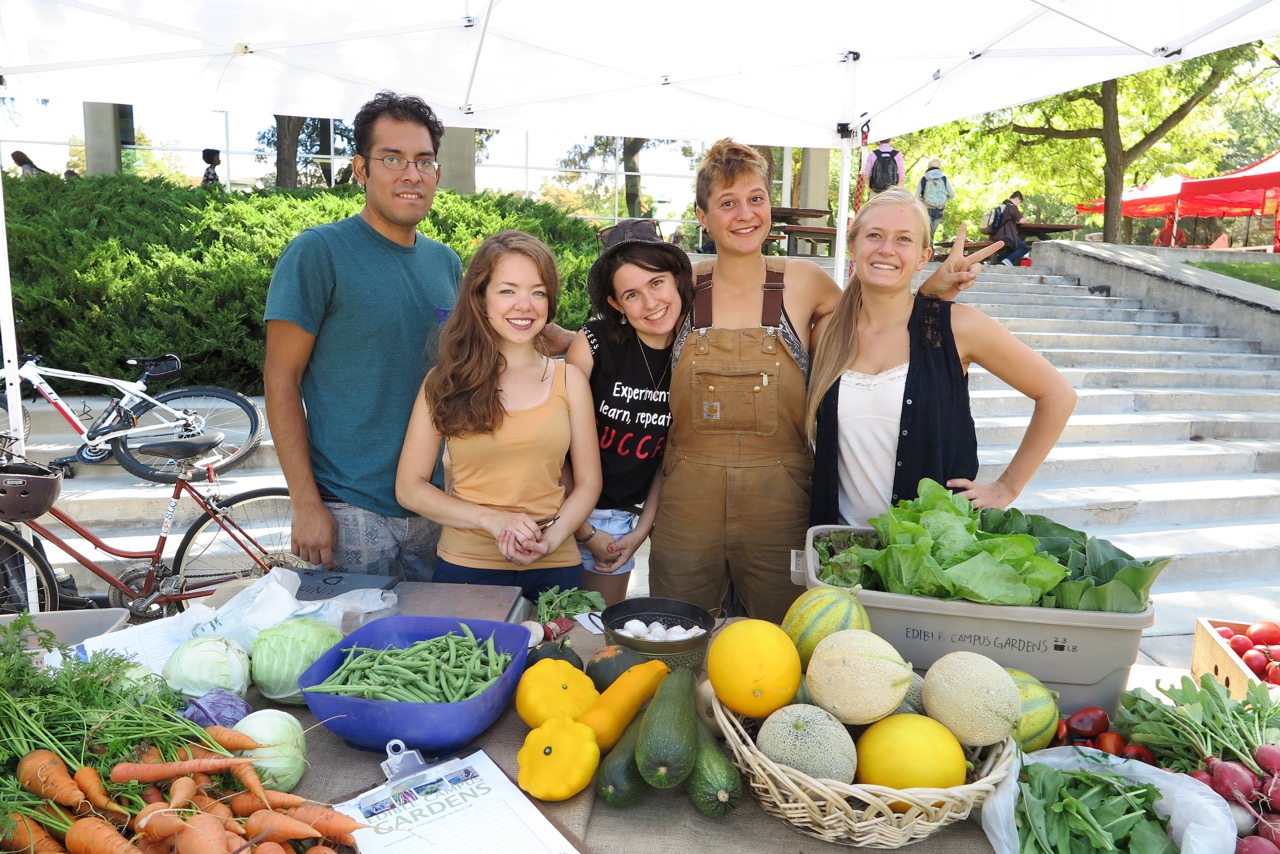
Just beyond of the University of Utah’s President’s Circle, tucked between buildings and walkways, you will find one of the Edible Campus Gardens. This beautiful garden has long brown garden beds speckled with a variety of young, green plants. As you walk between the beds, you will find kale, onions, garlic, and tomatoes, and for a moment you forget you are on an urban campus.
There are two garden locations on campus. The first and oldest garden is located at the Sill Center for undergraduate research, which was started in 1996 by Professor Fred Montague, who is also known for his handwritten and drawn book entitled, Gardening: An Ecological Approach. The second and larger garden site is located just east of Pioneer Memorial Theatre and was established in 2002.
Over the years these gardens have seen many changes and challenges; however, students and volunteers have continued to support and to grow the gardens. The Pioneer Garden has expanded multiple times, and most recently in 2016, the Pioneer Gardens built a greenhouse, which will extend the gardens’ growing season.
The University of Utah Sustainability Office manages the Edible Campus Gardens. The Office is a hub for sustainability engagement and supports sustainability in operations, research, and education. The Edible Campus Gardens program is a great example of using the campus as a living, learning laboratory. In addition to creating a hands-on learning and research space for several academic classes, the campus gardens encourage students to engage with their food system. Through learning about food systems, the Edible Campus Gardens remind us to take a critical look at U.S. industrialized food, and how it impacts environment, soils, biodiversity, wellness, and most importantly, communities.
 As our understanding of food systems evolve, demand for foods grown or produced locally is rising, and the Edible Campus Gardens program is part of that movement, increasing access to healthier food options. The produce from the gardens is sold at the on-campus University of Utah Farmers Market, which begins on August 25, sold to University Dining Services and other campus food vendors, and donated to the campus’s very own Feed U food pantry.
As our understanding of food systems evolve, demand for foods grown or produced locally is rising, and the Edible Campus Gardens program is part of that movement, increasing access to healthier food options. The produce from the gardens is sold at the on-campus University of Utah Farmers Market, which begins on August 25, sold to University Dining Services and other campus food vendors, and donated to the campus’s very own Feed U food pantry.
By changing the landscape, getting hands in the dirt, and reconnecting urbanites with the land, the Edible Campus Gardens are a model for growing food in the heart of the city. Visitors are welcome.






